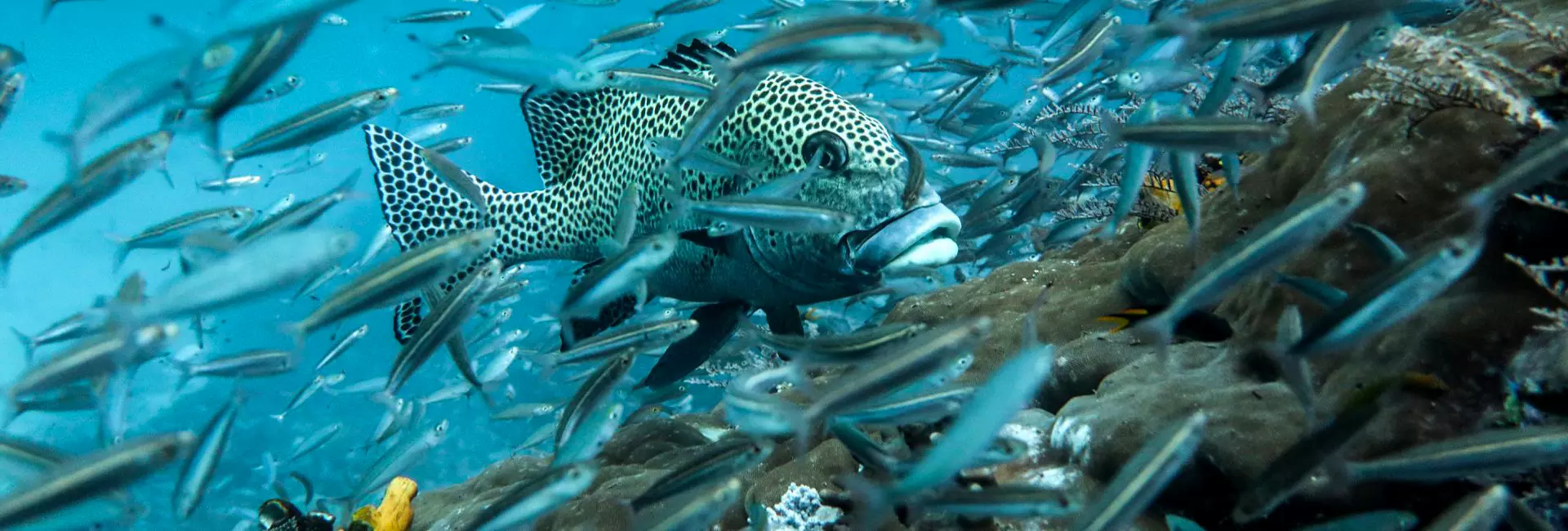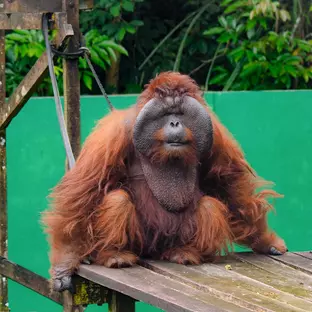When you think of wildlife conservation, what do you envision? Personally, before I knew all the facts and figures regarding saving the world’s wildlife, my knowledge of conservation was naïve.
I would imagine happy volunteers playing with the animals, breeding them in captivity protected from poachers, allowing the species to thrive for generations in this way. As my knowledge broadened, and I became aware of some truly tragic circumstances regarding endangered wildlife, but also extraordinary tales of wildlife conservation, a profound issue emerged. I realised that there is an essence of shared responsibility across humankind, not just the conservationists that choose to dedicate their lives to wildlife.
Human - Animal Conflict
It could be argued the illegal pet trade and poaching is the biggest threat to endangered animals. However, it is not the only threat animals face. Sadly, in places such as Africa and Asia, humans and animals need to co-exist in the environment they both call home. Understandably, farmers need to protect their farms and their families, as their livestock and their crops are their livelihoods. In third world countries also, it is much tougher to make means to an end than it is for me writing this on expensive technology, and yourself, reading on your iPhone or tablet or computer that these people would never be able to have. Furthermore, when animals that are powerful enough to pose an imminent threat to the farmer’s livelihoods, like elephants and tigers, sometimes they have no choice but to kill them when they come onto their premises.
The Importance Of Education
Opposing to the illegal pet trade, I feel as though the tragedies that stem from human-animal conflict do not always necessarily occur through malice. Out in the wild, mother nature says, ‘kill or be killed’ and therefore sometimes these people do not have a choice. However, what makes our Great Projects just that, is that our projects that have communities in close proximity to the animals, such as our Shamwari Conservation Experience, where visits to local schools are part of the itinerary, allowing volunteers to educate the youth on this issue. The children learn about the importance of conserving biodiversity and take part in recycling projects and other ways of sustaining and maintaining the animal’s habitat. The loss of which is one of the key reasons so many animals are now endangered. They believe if they can instil correct and appropriate knowledge into the children on how the conservationists and members of the community can work together, then when they grow up, and fill the shoes of their mothers and fathers, they will know how to care for their environment in the most appropriate way and will genuinely want to do so.
The conservationists tag the animals that wander onto farmers’ lands, so they can track them, keeping an eye on their whereabouts so they can predict, and prevent any human animal conflict. They safely redirect the animals back into their own environments so both the humans and the animals can continue with their lives minus any fuss.
Habitat Loss
Responsibility also falls heavily onto first world countries to preserve these animals. Some of the products we choose to use have such distinct ingredients that can only be found in particular parts of the world. Unfortunately, these commonly tend to be in areas of great biodiversity, that are destroyed to extract resources for our products. Alternatively, there are many products that are similar prices, have the same results, but do not involve massive loss of animal habitat. Always research natural remedies for any health or beauty issues, as these can be just as effective, and often cheaper! We have recently posted about animal cruelty-free cosmetics that are also a great alternative option to try.
It's Up To Us
For the people in the countries actually executing the loss of animal habitat, often have no other means of making money. The more educated these people are the greater the chance of change. The more people want to help each other, and care for the animals that we have slowly begun to destroy, we can work together, and take the shared responsibility we need to acknowledge, for the damage we have done to innocent wildlife. We encourage others to give to charity, to stop supporting the pet trade and all the other propaganda you would have heard of. Although, it is rare that you see humans admitting that the tragic state of the world’s wildlife is our fault.
Wildlife Conservation Does Work!

Some people may hold the view that even if they make subtle changes and try to make a difference, poachers are still going to kill the animals, and orphaned animals are still going to be sold into domestication, to be neglected when they become too difficult to handle. However, the work of wildlife conservationists so far has made such a difference already, therefore it is so worth it! 20 years ago, there were no white lions whatsoever in the wild. Now, there are 12 white lions in wild prides in South Africa, that are well and breeding! This, however, has taken time, and the issue at hand will not be solved overnight. Laws surrounding the illegal pet trade are beginning to become much stricter as awareness of the plight of endangered animals is spreading. If this is happening now, can you imagine how healthy the world could be in the next 20 years to come?
We Can Make A Difference
It is not just up to wildlife conservationists to reignite and maintain the ecosystems that are currently under threat around the globe. It is profound that awareness of this fact is spread, as it could be the key to unlocking the solution that all of us should be looking toward. It isn’t about preaching; if you have never volunteered with animals before, or you eat meat, no one is saying you are a bad person, or it’s your fault that, for example, 30-50% of all species could possibly be heading to extinction by the time we are halfway through this century. There should not be extremism, there should not be forcing information down people’s throats, creating more of a breakdown of those who care.
What is important is putting the knowledge and resources out there, that people then have the option to embrace. If everyone contributed, just a minuscule fraction, it could make the world of difference. We want to stop global warming and reduce carbon dioxide levels for the sake of the ozone layer because WE need the world to survive. It is, however, all or nothing, if we want the world to survive, we need all of the world to survive, including its inhabitants, whether bald, furry scaly or spiky…not just the parts that we need it for.
Of course here at The Great Projects, we give you the chance to make that difference. You can check out our project page if you would like to know more.
UPDATE: Discover How Fiji Are Sharing Responsibility To Conserve Their Precious Marine Life!
Fiji have recently set a fantastic example of how people can come together and make a difference to our world’s vulnerable wildlife. Cakaulevu is the third longest reef in the Southern Hemisphere and is also known as Fiji’s ‘hidden gem’, playing host to 40% of all known marine flora along with the endangered spinner dolphin and five out of seven sea turtle species.
The task is to effectively manage 200 kilometres of reef across four provinces by enforcing sustainable fishing practises to protect the livelihood of locals, but also secure a future for the mesmerising marine life that can be found here. In recent years, the reef has fallen on tough times under the impacts of unsustainable fishing, soil erosion and pollution from farms and industrial waste.
The local communities have come together to take the shared responsibility of creating a resilient reef that can withstand these types of burdens. The youth of Fiji have become fisherman and turtle monitors, learning to fish responsibly in particular areas and following specific quotas. Local businesses are promoting the purchase of locally caught fish, and even purchasing this produce themselves. WWF have even jumped on board introducing an initiative for women to become part of the movement for change. They are providing training regarding business and financial development so the women of Fiji can open local fish retailing businesses.
Economic surveys state that over 50% of the population struggle financially and cannot meet their basic needs. If a country with much less social flexibility than us in the western world can unite to make a change for wildlife, then, why can’t we?






















